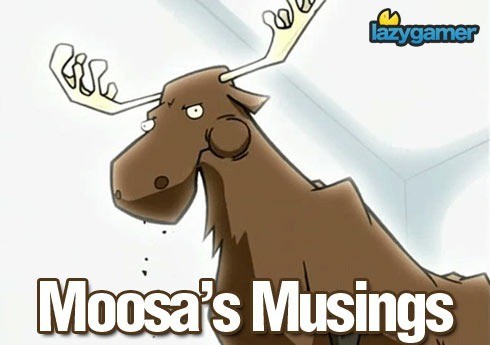
“Puritanism: The haunting fear that someone, somewhere may be happy.” – HL Mencken
Australia is often mocked for its Puritanical views, regarding what and how games are portrayed and sold within its kangaroo-lined borders. Blood must be changed to green, bodies disappear quickly, and all that. At least in 2009, it was the case that games required a rating in order to be sold there; but there was no “Mature” rating, a R18+ for example, which meant violent games couldn’t get a rating and therefore be sold at all. Fallout 3, Left 4 Dead, Aliens vs. Predator were all victims of this idiotic view.
What’s more interesting to me, though, is why and how games are classified.
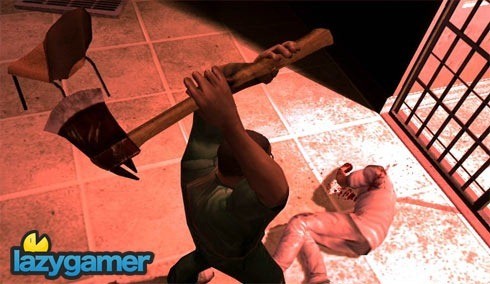
Given that Australia had no rating above the weird “15+”, this had the strange result of having games which were regarded as Mature in the rest of the world, as worthy of teenage angst in Australia (15+). For example, Dead Rising and its sequel got a rating of MA15+, but elsewhere it received 18 from BBFC, PEGI and CERO in other countries, and our own FPB. In some instances where this occurred, like in Left 4 Dead, the developers did have to make certain cuts and changes, to allow for less gore and bodies. But this didn’t, I think, happen in every instance (if someone knows different, please do let me). So certain games were changed in Australia making them worthy of 15+, but some weren’t changed at all, but still received the lower age restriction.
But this tells us something interesting: What in Zeus’ Great Beard’s name is the point of these age restrictions? ESRB is one such group to focus on, for example, which you might recognise on most of your US games. They are “a non-profit, self-regulatory body”. It’s not required for games to receive ESRB’s almost-literal stamp of approval, but “many retailers, including most major chains, have policies to only stock or sell games that carry an ESRB rating”. This means developers aren’t under law, at least in the US and Canada, to stick to ESRB guidelines, but if they hope to actually get their games to retailers, they are forced to.

This is not entirely restrictive, since we have games like Manhunt, Dead Space, and GTA IV all still receiving ESRB approval. Thus, if the ESRB is giving their approval under the banner of “Mature”, then that is good news: It hasn’t stopped you or me from putting a plastic bag over a man’s head and severing it off; or consulting prostitutes then shooting them in the face (with a bullet), to take our money back. So, before we take our torches to these busy-bodies, let’s remember what we have, even with their classification.
But what I find strange, if not worrying, are instances where such ratings impede our fellow gamers from acquiring titles. Australia is a good example of this, where it takes longer to get a game because of the ratings. We need to ask: Why have ratings at all? What is the point?
The main reasons
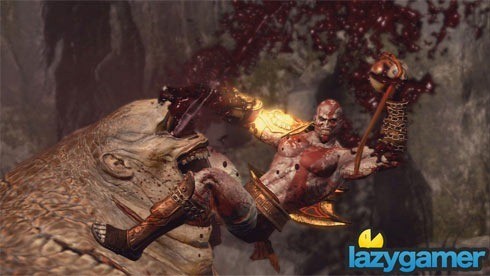
Apparently, the main reasons we need age restrictions are twofold: (1) to allow parents to control what their children are acquiring and, therefore, (2) to protect children from possibly damaging material.
There are problems with these justifications, though. To start broadly, the data is shabby, at best, or non-existent, at worst, concerning children and violence in games. This is not to say that violence in video games play absolutely no role in influencing children toward certain actions: but to pick on only violence in video games is arbitrary.
No one person is ever driven toward a certain action from purely one motivating factor: we are more complex than that. If we are talking about lowering violence in all sorts of fields, then video game age-restrictions naturally will fall into such a category. However, this acknowledges the idea of violence portrayed in society, as opposed to only focusing on the portrayal of violence in video games. There are good reasons to think limiting children’s exposure to, say, unconcerned and psychopathic demonstrations of violence might be good. Children are impressionable and, even if we are not successful in “protecting” them completely, they will mostly acknowledge they’re doing something most adults don’t approve of. This is a benefit itself, I speculate.
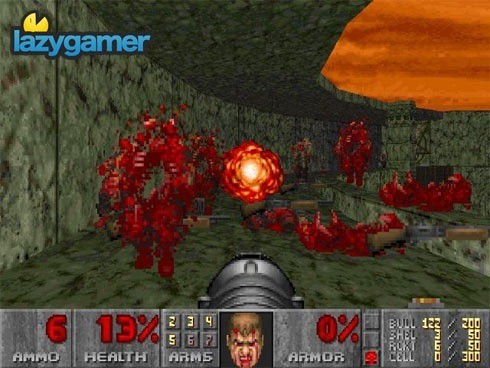
Secondly, we know for a fact that age-restrictions do not stop children from acquiring a game. Most people reading this were probably playing Doom and Duke Nukem when they were well below the age-restriction. Indeed, age-restrictions don’t stop even parents from purchasing games for children below the restriction. This has been occurring since games were made. Data consistently shows most children under 18 are still playing mature games, some with the knowledge of their parents. This tells us something rather encouraging: if all the maniacs and hysterical mouth-breathers who claim violence is linked to violent video-games were correct, then we should have millions of psychopathic, car-stealing, prostitute-killing, packet-severing lunatics. We don’t. This means gamers, even underage ones, can distinguish reality from fantasy.
So if age-restrictions don’t appear to be a deterrent and don’t stop most gamers from acquiring games higher than their age limit anyway, what good reason is there for having the age stamp of approval, from ESRB and similar organisations? The fight to get the appropriate stamp does more harm, it seems, as we know in places like Australia.
There is no good reason, there is only good business
I can see no good reason for age restrictions (as opposed to recommendations as I’ll soon note) on, basically, anything. That we still bleep out words in many programs irritates me to no end, too, along these lines. We are capable of making choices for ourselves. Parenting our children should be in our hands, not in the hands of a stamp or another agency. This is the same stupidity we’re seeing when it comes to blocking porn channels: Because a few idiotic zealots seem incapable of preventing their children, with their Spock-like ability to hack decoder accounts, from watching porn channels, the rest of the country is prevented from having paid-for porn. (Sometimes the children in these situations aren’t necessarily the ones still in school.)
What I do like are stamps that indicate what the game contains and indicate, perhaps, the age the game is aimed at. The justification here can be something like: “Those who will most benefit and enjoy this game properly will be mature adults.” For example, despite not being that graphic or violent, I don’t think most kids would get the nuances or meaning behind Deus Ex: Human Revolution or Silent Hill 2.
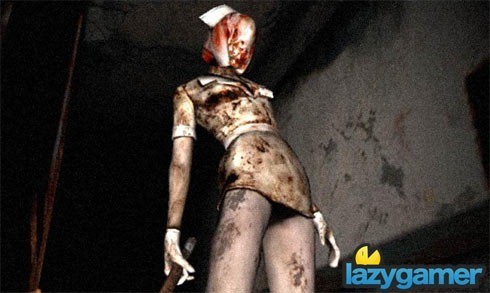
Another good justification can be something like: “The game contains the following non-grandparent-friendly type scenes: nudity, strong language, violence, etc.” For example, it’s good to have a warning on music cd’s that indicates “strong language” – so you don’t play it in the car while driving your in-laws around for example. These are good reasons, but indicate something else: The choice still rests with us in whether we wish to purchase or acquire these items. It’s not being restricted or lowered by some random government authority or self-regulated body “for our own good” or “to protect the children”.
The children are and have been quite capable of looking after themselves. Perhaps we’re doing more harm by being overtly fanatical about censorship and protection: we build a fence to keep the bad world out, but end up creating a prison that just keeps our children in.
From a business sense, this seems also logical. If we wish to sell games, it is better to have a stamp since most retailers require it.
But that does not make it right or good from a social standpoint. I’m not, nor will I ever be, a parent so I have not looked at age-restrictions since I was 16. But I do think more information is good – and if labels did this; coherently, simply and without making decisions on our behalf, I would have no problem with it.
Let’s see if this starts happening more in the future, though, given my disposition, I’m not hopeful.
Last Updated: March 19, 2012





















Stephie_The_Bear
July 3, 2013 at 11:41
I like that you pointed out that there is a difference between an “age restriction” and an “age recommendation.” I see little point in placing an age restriction on a game because as you said, children seem to be quite adept at getting hold of things they are not *technically* supposed to, with or without their parents knowledge. However, an age recommendation is completely appropriate as it allows the application of critical thinking. I think that it’s good to list the themes that feature in the game that people may take offence to; like violence, strong language etc so that parents are able to make informed decisions about what their child is exposed to – one of the things that is most important to me here is that they are given the option to decide for themselves.
Censorship or restricting access to information does no-one any favors. Just because an extraneous body has swept something under the rug, it doesn’t mean that it doesn’t exist. It also makes it more likely that people who don’t have access to this information will look for it elsewhere (because for censorship to be truly effective you would have to ban every form of media imho) – and in terms of parenting, I think this can be rather worrying as the internet has lots of dark corners that you won’t be able to monitor and discuss with your child (to be fair, I’m not a parent, but I know what I was like when I was a kid).
Stephie_The_Bear
July 3, 2013 at 11:50
And as a clarifier, I’d just like to point out that I don’t think that my way of hypothetical parenting is necessarily the “correct” way. We must all do as we see fit, but the point is that WE should be able to decide for ourselves what is appropriate and what is not.